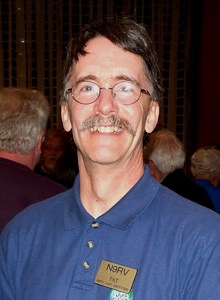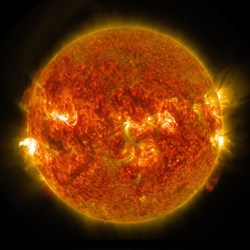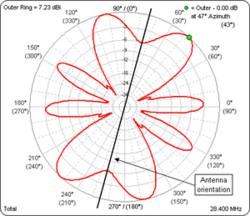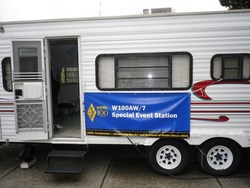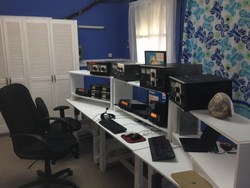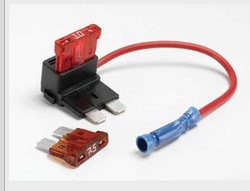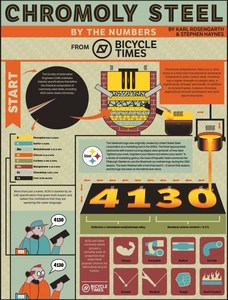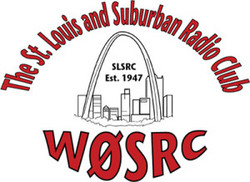 August 27, 2014 Editor: Ward Silver, NØAX | |||||||||
IN THIS ISSUE
NEW HF OPERATORS - THINGS TO DO Rookie RTTY operators who wish to continue their exploits after last Sunday's ARRL Rookie Roundup might want to jump in to the SCC RTTY Championship and the Russian Radio RTTY WW contests. Try your hand at some RTTY DX and score some points along the way. BULLETINS There are no bulletins in this issue. BUSTED QSOS No significant variations from reality were reported in the previous issue. CONTEST SUMMARY Complete information for all contests follows the Conversation section Aug 30-31
Sep 6-7
The National Contest Journal's editorial chair has moved west to the Bozeman, Montana home of Pat Barkey N9RV. No stranger to the Top of the Top Ten in NCJ contests, Pat's long and successful history of competitive operating will serve the NCJ readership well. At the same time, we'd also like to acknowledge the yeoman's work done by outgoing editor, Kirk Pickering K4RO. Kirk directed a complete reworking of the NCJ website and overhauled the management of popular NCJ North American QSO Party and Sprint contests - all while getting a quality magazine out on schedule. The support of Bruce WA7BNM during and after the transition in addition to the many other services he provides is also greatly appreciated. The contest community thanks both Pat and Kirk for their efforts and willingness to contribute time and energy on the community's behalf. The log checkers and writeup authors are getting ready to do their work on the 2014 IARU HF Championship results - wouldn't it be terrific if the records were up to date? Previously maintained by the sorely-missed Ken Adams K5KA (SK), IARU HF records were last current in 2003 and consist of all-time category records and records in each category for the land-based ITU zones. If you can contribute some keyboard time, all of the IARU results are available online through ARRL Contest Results web page and the searchable online databases. It would be acceptable to have volunteers taking a continent or category or clubs working together to maintain the data set. If you are interested, please contact your editor or the IARU HF author, Nate Moreschi N4YDU and we'll see what we can accomplish. In another example of the Worldwide Radio Operators Foundation (WWROF) helping to support some of contesting's most valued assets, it is has assumed ownership and control of the widely-used Cabrillo Log Format Specification. Originally created by Trey Garlough N5KO and recently maintained by Bob Wilson, N6TV, the specification was developed to provide a consistent log format for contest sponsors. Contest organizers including CQ, ARRL and DARC quickly supported the idea. More importantly and key to its viability, leading contest logging program authors such as K1EA, N6TR, K8CC, W5XD, EI5DI and others also embraced the concept from the start. Looking ahead and acting on behalf of WWROF, Randy Thompson K5ZD, has agreed to administer the standard on behalf of the contesting community. A review process for change requests will be announced at a later date.
New Windows 8.1-based computers may come with their function keys configured to access multimedia functions instead of the expected F1-F12. Several report that the "normal" function key operation is configured to require pressing the FN key. i.e. to call CQ with logging software, you would press FN-F1. This is generally changeable through the BIOS settings that can be accessed during the startup process. (Thanks to Juan TG9AJR, Stan K5GO, and Dink N7WA, among others) The Alabama Contest Group awarded their annual Southeast Contester of the Year for 2014 to Austin "Doc" Regal, N4WW. The presentation was made at the recent Huntsville Hamfest. (Thanks, Larry K4AB) A familiar contester's face graces an IEEE Institute story on Ted Rappaport N9NB and his efforts in pushing the envelope of 5G wireless data systems. Ted gives a lot of credit to Amateur Radio in jump-starting his interest in all things wireless, as well. In the same issue, read the article "Stirring Up Interest in STEM" about how STEM (Science, Technology, Engineering, Math) topics are taught all the way through the educational system. Ham radio certainly has a role in those efforts! (Thanks, K5OT)
You may have seen this ARRL News item about the large donation from Kan JA1BK that will fund the collection and entry of old DX logs into the ARRL Logbook Of The World system. There are a lot of those logs out there in the contest archives, too. Help find and preserve those old contest logs! Web Site of the Week - Updating the classic reference Transmission Line Transformers by Jerry Sevick W2FMI (SK) to a 5th edition has been completed by Raymond Mack W5IFS. A significant advance from the familiar 4th edition, the revisions underway at Jerry's death involved significant new material on ferrite properties and the behavior of copper wire in this application. The newly completed version of book has been reorganized more like a textbook, further increasing its value to amateurs and professional engineers. WORD TO THE WISE Tram - this is an excellent method of lifting antennas to the tops of guyed towers, especially if festooned with other antennas. By using a tram cable that extends well away from the tower, the antenna can ride a tram pulley directly to the top and even be lowered into place for the climber to attach. No more trying to maneuver all those elements around guys! Information on tramming is available in the ARRL's Antenna Book as well as tower climbing books by K4ZA and K7LXC. Featured in the previous issue, Miguel EC1DJ spent some years as a professional DJ in Spain and has published a good list of audio-video performances involving radio.
A legendary radio scoundrel, Don Miller W9WNV did a lot of operating in contests, too. Mike K3UOC put together some slide shows of several of Don's expeditions. They are now published on the German-language DokuFunk website, but pictures speak in all languages! Fans of quirky, geek-related songs might enjoy a romp through the collected works of Jonathan Coulton. While not directly about ham radio, several of the characters might be recognizable! (Thanks, Margaret Bobb) The complete list of Field Day logs has been uploaded to the ARRL's Logs Received web page. This list includes all logs received through the WA7BNM web applet as well as those sent via regular email or postal service. To see the list, scroll to the bottom of the page for the Field Day entry. (This may be changed in the next few days so check the regular list as well.) If you find an error in your listing, please contact Contest Branch Manager, Matt Wilhelm W1MSW at 860-594-0232 or by email no later than September 12. PDF versions of the QST articles for RTTY Roundup and ARRL DX CW are now available via the Contest Results page, too. ARRL Rookie Roundup results for the August RTTY contest have been compiled and published by WA7BNM. If you took pictures of your operation from either the August or April Rookie Roundups, please post them to the ARRL Soapbox web page!
The full results of the 2014 Michigan QSO Party are now available on the MiQP website. Certificate and plaque awards are in the process of production, and should be in the winner's hands no later than October 1. (Thanks, Dave K8CC and the MiQP Organizing Committee) Full results for 2014 CQMM DX Contest have been published. 816 participants from 99 DXCC entities took part in the competition which was sponsored by the CWJF Group, including 117,295 QSOs from 8,085 participants across all continents. (Thanks, Luc PY8AZT) Growing by little bits its organizers aim to make the summer NJQRP Skeeter Hunt a "must have/must do" outdoor QRP event for years to come! The Scoreboard and all Soapbox comments are now available online. (Thanks, Skeeter #13, Larry W2LJ) OPERATING TIP The North American CW Sprint is nearly upon us (Sep 6) and while this challenging but exhilarating contest can be intimidating to newcomers, tips for how to operate in true sprint style can be found in the N1MM Logger user manual. In fact, N1MM programmer, Steve N2IC, has collected a number of "N1MM Sprint Survival Tips" for you in the manual. While written for N1MM, the basic ideas can often be translated into configurations for other software. To repair a rotating 80 meter dipole, Steve N2IC discovered a method by VE6WZ of building loading coils http://www.qsl.net/ve6wz/coil.htm. The replacements have now been up for 10 years at VE6WZ without failure. (Thanks, Steve N2IC)
Hooking up mobile rigs and other medium and light loads to a vehicle's electrical system can be quite a trick! One possible solution is to use an automotive "fuse tap" as described by Richard AA5VU. Seen in the photo at right and available at auto parts stores, the fuse tap is inserted in place of an existing fuse (replaced on the fuse tap) and creates a separate, fused current path for the new circuit. Use caution, however - just because the new circuit is fused doesn't necessarily mean the wiring supplying the fuse block can handle any number of taps! A 25 or 50 W transceiver used with a typical 25% transmit duty cycle will probably be okay, but installing several to power various loads could lead to an expensive overload of the wiring to the battery. (Thanks also to Steve AG1YK) If you want to avoid the highprice of vacuum variables Herb KV4FZ suggests the much lower cost of using G2 or equal HV high-current fixed mica capacitors. Create an adjustable capacitor by adding a series inductance like a hand wound coil of copper tubing or a simple roller inductor. If you are using the capacitor in a tuning unit, for example, use the variable unit to find the correct match, then replace it with a fixed-value capacitor. Since you don't want bird nests and wasps inside an antenna boom, do not leave it open. Dan N5AR uses small screens of hardware cloth in each end. Cut discs of hardware cloth a couple of inches larger than the boom diameter. Then cut radial slits every inch or so around the outside edge. Bend the resulting flaps in so they will slide into the boom and stay in place. The galvanized screen also allows for drainage and air circulation, too.
If you wrestle with limited space for tools and parts but an unlimited appetite for workbench activities, take a look at this nice home hobbyist's electronics cabinet published by Circuit Cellar. Technical Web Site of the Week - Selecting and connecting a microphone for older radios can be a challenge. G4WPW has published a good web page on wiring the microphones - but as far how to choose a particular microphone for a particular rig, that's a different story. Most of the radio manuals specify what type of microphone input circuit they have - that should clue you in as to whether you can use a certain type of microphone (dynamic, electret, etc) without some kind of conditioning/buffering circuit. The Heil Sound microphone primer may be just what you need! Little Contests, Big Results One of my local radio clubs, the St Louis and Suburban Radio Club (WØSRC) is hosting a 2 meter FM sprint contest this weekend on Saturday evening. As contests go, it's a short one and unlikely to cause much QRM on the band. The basics - 7 to 10 PM; simplex channels from 147.42 to 147.56; exchange of call sign, contact serial number, and Zip code. Operators can stay home, set up from the nearest high spot, or drive around as a mobile. (I think I might try that last one.)
What's the big deal? No one is going to get the rate meter much over 60 QSOs per hour for very long. The biggest log might be 100 QSOs. Maximum distance might be 30 miles. Why is this newsworthy in a contest newsletter? Because it's an example of how to introduce new hams and those looking for something new to competitive operating, getting more out of their equipment, and learning some operating skills. This type of activity is one source of new contest operators and, more importantly, the more activities a ham experiences, the more likely that ham is to be a lifetime ham. It is uncommon that a person selects one particular niche in one particular type of activity and finds that to be enough for a lifetime. Hams who don't get a glimpse of the other things ham radio has to offer often don't renew their license or become inactive. Ham radio, being as broad as it is, we might think there's no excuse for not putting a toe in some of the various waters but we all need encouragement to give it a try. I remember my Novice days and being encouraged to enter the Novice Roundup by my friends. Hey, that was fun! An invitation from the manager of the Slow Speed Net led to a lot of traffic handling, even if I did check in with two pieces of non-existent traffic for Kansas City because I mistakenly thought the example was instructions for checking in! No harm, no foul! What was key in both instances was personal invitations and guidance by more experienced hams. Start small and easy - inviting hams of any level to jump right in to a full-blown expert-level activity may not yield the intended results. Finding more casual events compatible with beginner skills is far more likely to be remembered fondly by the new participant. Take a look at the list of available contests for the next two weeks - there are a number of short, easygoing sprints, state QSO parties, and specialty contests in which the beginner can have fun. The next step is to give a little of your time to show them the ropes. Or to help your club sponsor a local contest or "contest within a contest". Success can be as close at hand as showing someone how to adjust their squelch control to copy a weak station or suggesting the use of phonetics or explaining how Zip codes are like these grid square things. If you are getting a nibble on the hook, why, the September VHF Contest with its new FM-Only category is just a couple of weeks away or maybe the fall DX contests would be interesting. Outreach - both inside and outside ham radio - is the biggest challenge facing ham radio for the next couple of decades. There are many opportunities available to all of us every weekend. Take the opportunity to help others take the little steps that lead to a lifetime journey. Aug 27 through Sep 9 An expanded, downloadable version of QST's Contest Corral in PDF format is available. Check the sponsor's Web site for information on operating time restrictions and other instructions. HF CONTESTS Full Day of Hell--Digital, from Aug 30, 0000Z to Aug 30, 2359Z. Bands (MHz): 1.8-28. Exchange: RST, S/P/C, Feld-Hell mbr nr, 4-char grid square. Logs due: 7 days. Rules SCC RTTY Championship--Digital, from Aug 30, 1200Z to Aug 31, 1159Z. Bands (MHz): 3.5-28. Exchange: RST, 4-char year first licensed. Logs due: Sep 15. Rules YO DX HF Contest--Phone,CW, from Aug 30, 1200Z to Aug 31, 1159Z. Bands (MHz): 3.5-28. Exchange: RS(T), serial or YO district. Logs due: 30 days. Rules Colorado QSO Party--Phone,CW,Digital, from Aug 30, 1200Z to Aug 31, 0400Z. Bands (MHz): 1.8-28, 50+, CW--50 kHz above band edge; Phone--1.870, 3.850, 7.250, 14.250, 21.350, 28.450 MHz. Exchange: Call sign, name, and county or S/P/C. Logs due: Sep 28. Rules OK1WC Memorial Contest--Phone,CW, from Sep 1, 1630Z to Sep 1, 1730Z. Bands (MHz): 3.5, 7. Weekly on Monday, see website for bands. Exchange: RS(T) and serial. Logs due: 5 days. Rules Labor Day Sprint--CW, from Sep 1, 2300Z to Sep 2, 0300Z. Bands (MHz): 1.8-28, 50. Exchange: RST, S/P/C, MI QRP nr or power. Logs due: 2 weeks. Rules NAQCC/FISTS WZ8C Honor Sprint--CW, from Sep 3, 0000Z to Sep 3, 0300Z. Bands (MHz): 3.5-14. Exchange: Call sign, "NANCY", S/P/C, mbr id - see website. Rules 1 - Rules 2 ARS Spartan Sprint--CW, from Sep 3, 0200Z to Sep 3, 0400Z. Bands (MHz): 3.5-28. Monthly on the first Monday evening local time. Exchange: RST, S/P/C, and power. Logs due: 2 days. Rules CWOps Weekly Mini-CWT Tests--CW, from Sep 3, 1300Z - See website. Multiple time periods. Bands (MHz): 1.8-28. Weekly on Wednesday, 28 to 38 kHz above band edge. Exchange: Name and member number or S/P/C. Logs due: 2 days. Rules NS Weekly Sprint--CW, from Sep 5, 0230Z to Sep 5, 0300Z. Bands (MHz): 1.8-14. Every Thursday evening (local). Exchange: Serial, name, and S/P/C. Logs due: 2 days. Rules 070 Club KA3X Memorial Sprint--Digital, from Sep 6, 8 PM to Sep 7, 2 AM. Bands (MHz): 3.5. 3.580 MHz. Exchange: Call sign, RST and S/P/C. Logs due: Sep 21. Rules CWops CW Open--CW, from Sep 6, 0000Z - See website. Multiple time periods. Bands (MHz): 1.8-28. Exchange: Serial and name. Logs due: Sep 20. Rules All-Asian DX Contest--Phone, from Sep 6, 0000Z to Sep 7, 2400Z. Bands (MHz): 3.5-28. Exchange: RS, operator age (YL may send 00). Logs due: Oct 31. Rules Russian Radio RTTY WW--Digital, from Sep 6, 0000Z to Sep 6, 2400Z. Bands (MHz): 3.5-28. Exchange: RST and oblast or WAZ zone. Logs due: Oct 1. Rules DARC 10 Meter Digital "Corona"--Digital, from Sep 6, 1100Z to Sep 6, 1700Z. Bands (MHz): 28. Exchange: RST and serial. Logs due: 2 weeks. Rules IARU Region I Field Day--Phone, from Sep 6, 1300Z to Sep 7, 1300Z. Bands (MHz): 1.8-28. Exchange: RS and serial. Logs due: 16 days. Rules: See IARU Society web pages Straight Key Party--CW, from Sep 6, 1300Z to Sep 6, 1600Z. Bands (MHz): 7. Exchange: RST, serial, category, name, age. Logs due: Sep 30. Rules Indiana Parks on the Air--Phone,CW,Digital, from Sep 6, 1600Z to Sep 6, 2400Z. Bands (MHz): 3.5-28, 50. Exchange: Category and Park ID or S/P/C. Rules Ohio State Parks On the Air--Phone,CW, from Sep 6, 1600Z to Sep 6, 2359Z. Bands (MHz): 3.5-21, 50. Exchange: "Ohio" or S/P/DX and Park ID. Logs due: 14 days. Rules North American Sprint--CW, from Sep 7, 0000Z to Sep 7, 0359Z. Bands (MHz): 3.5-14. Exchange: Call signs, serial, name, and state. Logs due: 7 days. Rules QRP ARCI Two Sidebands Sprint--Phone, from Sep 7, 1500Z - See website. Multiple time periods. Bands (MHz): 1.8-28. Exchange: S/P/C and ARCI member nr or power. Logs due: 14 days. Rules Tennessee QSO Party--Phone,CW,Digital, from Sep 7, 1800Z to Sep 8, 0300Z. Bands (MHz): 1.8-28, 50+, See website. Exchange: RS(T) and county or S/P/C. Logs due: Oct 8. Rules VHF+ CONTESTS Colorado QSO Party--Phone,CW,Digital, from Aug 30, 1200Z to Aug 31, 0400Z. Bands (MHz): 1.8-28, 50+, CW--50 kHz above band edge; Phone--1.870, 3.850, 7.250, 14.250, 21.350, 28.450 MHz. Exchange: Call sign, name, and county or S/P/C. Logs due: Sep 28. Rules Labor Day Sprint--CW, from Sep 1, 2300Z to Sep 2, 0300Z. Bands (MHz): 1.8-28, 50. Exchange: RST, S/P/C, MI QRP nr or power. Logs due: 2 weeks. Rules Indiana Parks on the Air--Phone,CW,Digital, from Sep 6, 1600Z to Sep 6, 2400Z. Bands (MHz): 3.5-28, 50. Exchange: Category and Park ID or S/P/C. Rules Ohio State Parks On the Air--Phone,CW, from Sep 6, 1600Z to Sep 6, 2359Z. Bands (MHz): 3.5-21, 50. Exchange: "Ohio" or S/P/DX and Park ID. Logs due: 14 days. Rules Tennessee QSO Party--Phone,CW,Digital, from Sep 7, 1800Z to Sep 8, 0300Z. Bands (MHz): 1.8-28, 50+, See website. Exchange: RS(T) and county or S/P/C. Logs due: Oct 8. Rules LOG DUE DATES Aug 27 through Sep 9
ARRL Information Click here to advertise in this newsletter, space subject to availability. Your One-Stop Resource for Amateur Radio News and Information ARRL membership includes QST, Amateur Radio's most popular and informative journal, delivered to your mailbox each month. Subscribe to NCJ - the National Contest Journal. Published bimonthly, features articles by top contesters, letters, hints, statistics, scores, NA Sprint and QSO Parties. Subscribe to QEX - A Forum for Communications Experimenters. Published bimonthly, features technical articles, construction projects, columns and other items of interest to radio amateurs and communications professionals. Free of charge to ARRL members: Subscribe to The ARRL Letter (weekly digest of news and information), the ARES E-Letter (monthly public service and emergency communications news), Division and Section news -- and much more! ARRL offers a wide array of products to enhance your enjoyment of Amateur Radio. Visit the site often for new publications, specials and sales. Donate to the fund of your choice -- support programs not funded by member dues! Reprint permission can be obtained by sending email to [email protected] with a description of the material and the reprint publication. ACKNOWLEDGEMENTS ARRL Contest Update wishes to acknowledge information from WA7BNM's Contest Calendar and SM3CER's Contest Calendar. | |||||||||
